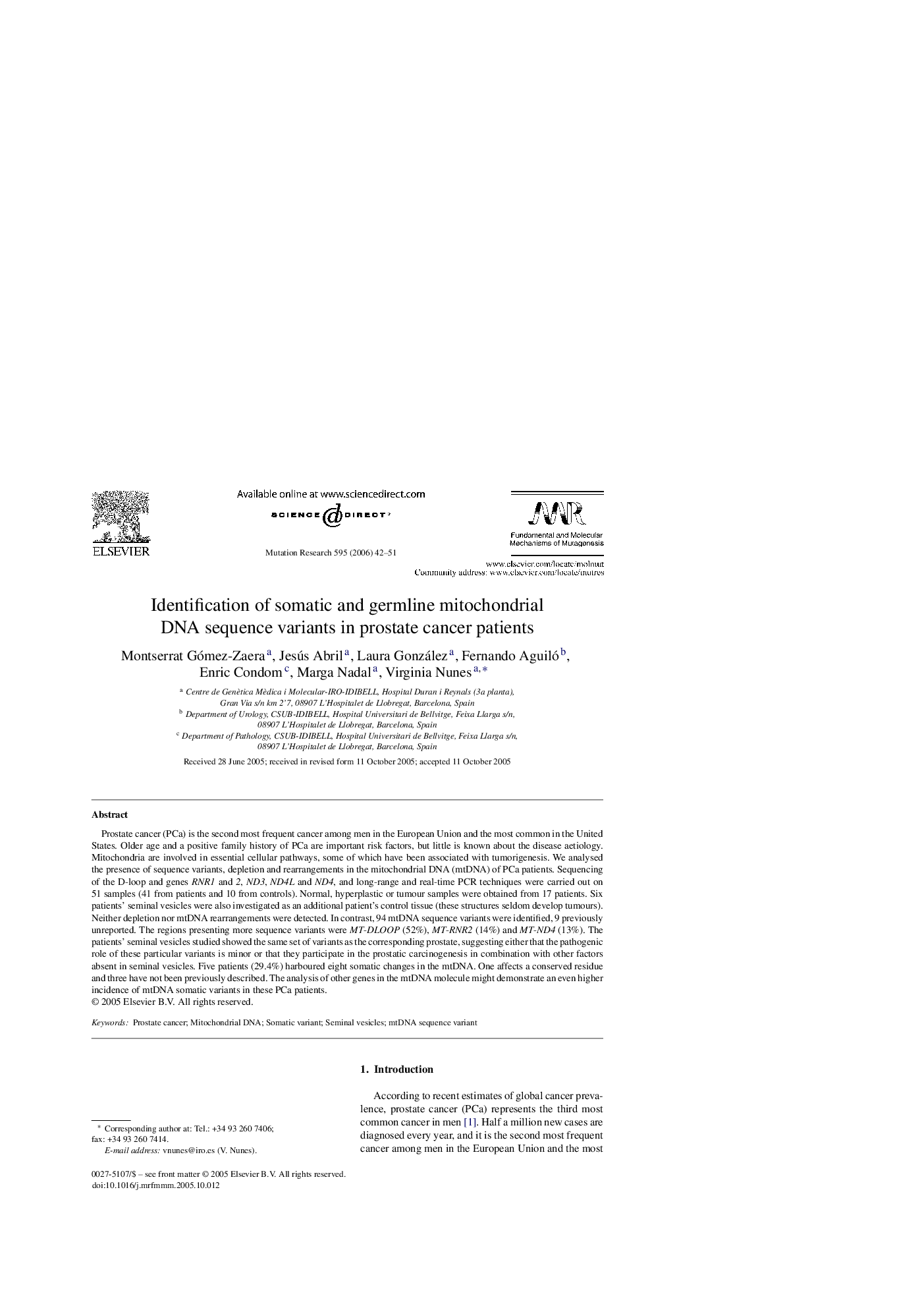| Article ID | Journal | Published Year | Pages | File Type |
|---|---|---|---|---|
| 2147658 | Mutation Research/Fundamental and Molecular Mechanisms of Mutagenesis | 2006 | 10 Pages |
Prostate cancer (PCa) is the second most frequent cancer among men in the European Union and the most common in the United States. Older age and a positive family history of PCa are important risk factors, but little is known about the disease aetiology. Mitochondria are involved in essential cellular pathways, some of which have been associated with tumorigenesis. We analysed the presence of sequence variants, depletion and rearrangements in the mitochondrial DNA (mtDNA) of PCa patients. Sequencing of the D-loop and genes RNR1 and 2, ND3, ND4L and ND4, and long-range and real-time PCR techniques were carried out on 51 samples (41 from patients and 10 from controls). Normal, hyperplastic or tumour samples were obtained from 17 patients. Six patients’ seminal vesicles were also investigated as an additional patient's control tissue (these structures seldom develop tumours). Neither depletion nor mtDNA rearrangements were detected. In contrast, 94 mtDNA sequence variants were identified, 9 previously unreported. The regions presenting more sequence variants were MT-DLOOP (52%), MT-RNR2 (14%) and MT-ND4 (13%). The patients’ seminal vesicles studied showed the same set of variants as the corresponding prostate, suggesting either that the pathogenic role of these particular variants is minor or that they participate in the prostatic carcinogenesis in combination with other factors absent in seminal vesicles. Five patients (29.4%) harboured eight somatic changes in the mtDNA. One affects a conserved residue and three have not been previously described. The analysis of other genes in the mtDNA molecule might demonstrate an even higher incidence of mtDNA somatic variants in these PCa patients.
